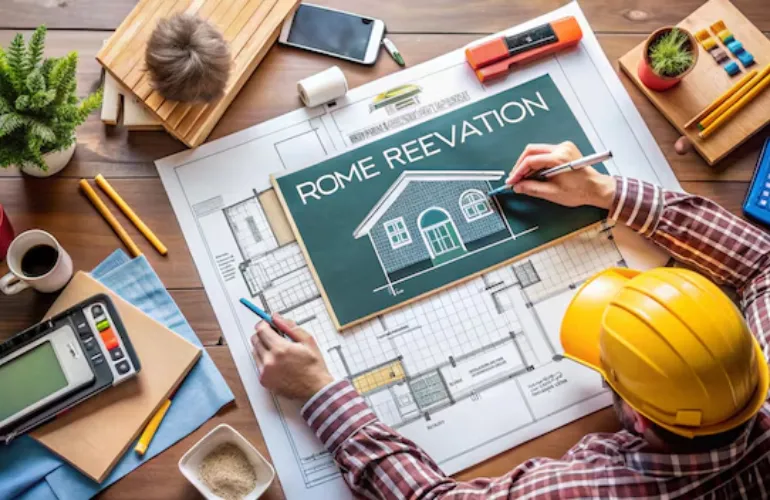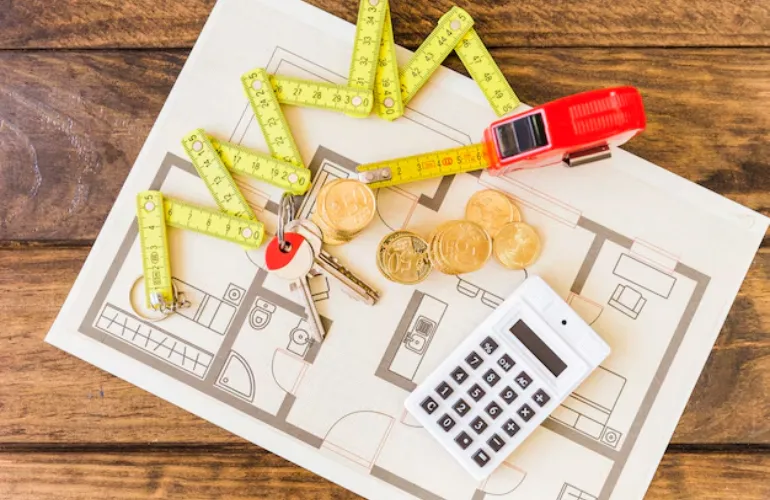Home improvement financing is the most basic step for turning your home renovation dreams into reality. You would like to transform your kitchen, bathroom, or even add more living space in your dream house, and home improvement financing finances such work without wiping away your savings. Understanding what is available will be the right tool for making a sound financial decision concerning your home upgrade. In this guide, we will show you the various ways you can finance your home improvement projects while considering your budget and long-term aspirations.
Why Home Improvement Financing is Necessary for Large Projects
Not many people have saved up for the costs of revamping or improving their home. Most homeowners cannot afford to pay out of pocket for these big tickets, which means that home improvement financing is a must. Funding helps you pay off the cost of your project over time. Therefore, it makes it more affordable and manageable. Most cases of home improvement financing are meant to cover both labor and materials. Costs tend to shoot through the roof when following through on major renovation plans. Knowing some financing options will help you find the best way to fund your project minus all that stress.
The Different Types of Home Improvement Financing Options Available
There are different forms of home improvement funding available and, indeed, each has its benefit and requirement that would suit a particular kind of operation. Here’s a breakdown of some of the most common types:
1. Long-term projects using home equity loans
A home equity loan allows you to borrow against the equity you own in your house. This is a fixed interest loan, meaning that the payments will remain the same for the life of the loan. Home equity loans are good for large improvements you don’t have to pay off right now, and they typically have limits up to 85 percent of the value of your house.
2. Personal Loans- for flexible payment terms
Personal loans are flexible because one does not need to place his home as security. Many homeowners like this because in case of late repayments, no risk will come to their home. Although interest rates on personal loans tend to be relatively higher than those of home equity loans, they usually have easier access, thus great for minor or emergency projects.
3. Credit Cards for Minor Upgrades
Using a credit card for home improvements is recommended only for smaller projects, like painting a room or replacing fixtures. Convenient though it may be, using a credit card will mean you are going to pay more than you would with other forms of financing, and you need to pay off the balance quickly to avoid paying interest charges that could build up to be quite a cost.
4. Government Loans for Energy-Efficient Upgrades
Government-backed loans, such as the FHA Title I Home Improvement Loan, are available for projects that will make your home more energy efficient. These are highly attractive because the rates are usually lower than other loans. For someone looking to install solar panels, improve insulation, or replace old windows with ones that save a homeowner money on energy bills, this is a wonderful opportunity.
5. Contractor-based Loans for Home Improvement
Some contractors provide in-house financing that will allow you to pay for your project over time directly with them. It is, though, convenient at a higher interest rate. Compare contractor financing alternatives with those offered by a bank or credit union and get the best possible deal in your favor.
How to Choose the Right Home Improvement Financing Option
Home improvements financing depends on your current financial situation, the size of your project, and your long-term goals. So here are some factors to consider when choosing your financing option:
1. Budget and Loan Terms Evaluation
Carefully observe your budget before you choose a financing option. From here, consider what you can afford in terms of borrowing and monthly repayments. For example, with home equity loans, the interests might be low, but it will demand longer periods to be repaid. In other words, personal loans may have a higher interest rate but a shorter term.
2. Examine Interest Rates and Fees
Interest rates can fluctuate greatly depending on what type of financing you choose. Secured financing, for example, such as an equity loan, tends to be cheaper compared to unsecured financing-for instance, personal loans or making use of credit cards. Find any origination fees which you are charged to create a new loan and factor that additional fee into the consideration of your other choices. Read Here.
3. Consider Your Level of Investment
For a major renovation of a house, a home equity loan would be the preferable choice since it can advance huge funds. Minor projects like one room’s renovation do not require large amounts, so a personal loan or credit card is the better alternative.
Benefits of Using Home Improvement Financing
Financing your home improvement project will have several advantages:
Monthly Affordable Payments: This pays for the project over time instead of at one go.
Brings Higher Value to the House: The improvement on your home increases its value in the market.
Budgeting Becomes Easier: This financing allows you more efficient budgeting since the payback schedule is clear.
Financing Large Projects: Through financing, you are able to access projects that you may not afford at one go.
What is home improvement financing?
Home improvement financing refers to various forms of loans one can use to borrow money for renovation and improvements on a home. Such include home equity loans, personal loans as well as credit card financing.
What is the best finance option for home improvements?
The best financing option will really depend on the size of your project and your financial situation. With a home improvement project that is larger, a home equity loan will fit the bill well. More minor improvements work well with personal loans.
How do home equity loans work in financing home improvements?
Home equity loans allow you to borrow on the equity you have in a home. They have fixed interest rates and are often applied towards large renovation projects.
Conclusion
Home improvement financing is a good way to finance renovations and home improvement projects. With more than enough options to choose from, including home equity loans, personal loans, and government-backed loans, home improvement loan seekers can find the best option that is going to suit them exactly according to their needs and scope of the project. Analyzing the terms and interest rates will help in making a very informed decision that will work out dreams for renovation into fact without going over budget.



